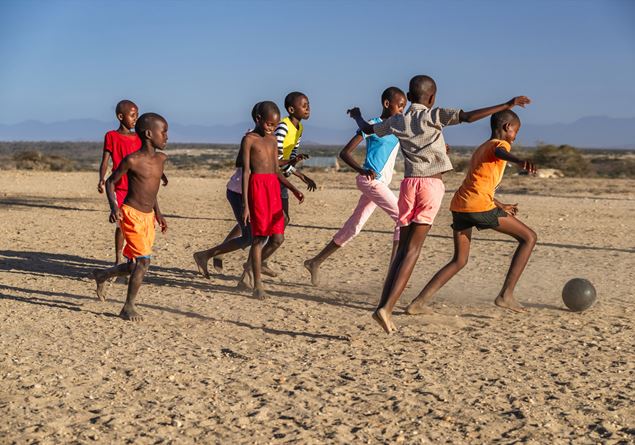While the summer turns the spotlight on the transfer market, as usual, with millions of euros flying between clubs and agents, there is another market, submerged and dramatic, which intensifies in this period: that of football trafficking. Human trafficking whose victims are young people, often minors, from Africa and South America, lured to Europe or Asia with the dream of football and instead ending up in a web of deception, abandonment and exploitation.
According to lNGO Foot Solidaire, every year around 15,000 young people from all over Africa leave with the hope of becoming professional footballers. «There is talk of 60,000 minors involved in ten years, but there are also estimates that speak of even higher numbers» he says Paola Cereda, psychologist and writerwho has just published the novel The only possible ending (Bollati Boringhieri)inspired by true stories that he intercepted and followed by collaborating with Asai, the intercultural animation association that operates in the working-class neighborhoods of Turin. «They are kids who leave with a huge financial investment from their families, find themselves on the other side of the world with no references and, when they realize they have been scammed, they can no longer go back. They feel the responsibility of their family on their shoulders. For them it is the greatest failure.”
Football trafficking is a phenomenon that is still little known compared to migration by sea. Fewer but equally serious. «What differentiates these kids from those who arrive on boats? Apparently nothing, except the route. But in their heads the journey is linked to a dream, to a passion for football, to a future as champions. When that dream breaks, all that remains is the shame and sense of loss” explains Cereda. «Many of them don’t like to talk about what happened. Why tell a story that for you represents the greatest failure”?
An organized criminal system is often hidden behind the promises of auditions and contracts. «Fifa, the international football federation, has tried to stem the phenomenon by prohibiting the transfer of unaccompanied minors, but the laws are circumvented through fake football academies and false agents» denounces Cereda. And in many cases football trafficking is intertwined with other illegal trafficking, such as drugs and prostitution. In Italy the phenomenon is less documented than elsewhere, but not absent. Interpol has reported cases of victims linked to the world of sport in our country too, even if the last police investigation dates back to 2017 and there is no precise data on the phenomenon.
«The problem is that these young victims remain without prospects and invisible even on a legal level. In fact, they do not fall within the classic paths of requesting asylum or protection. They are ghosts, suspended in limbo” continues the psychologist and writer. «And when the dream is shattered, only frustration, isolation and psychological wounds remain. Loss of trust in others and in the future. For this reason, in associations like ours, we work on the rehabilitation of the dream. The hope of being able to play football is fundamental, because it gives the prospect of moving towards something.” Paola Cereda’s novel tells the story of Momo, a young Senegalese who arrived in Europe with the promise of an audition. His story comes from direct experience. «Within the integrated theater company that I coordinate in Turin, several unaccompanied foreign minors arrived for a period. Many of them had started with the dream of football. But they didn’t talk about it willingly: telling a betrayed dream means admitting a personal and family failure».
Theatre, like literature, can be a tool to give voice to those who would otherwise remain on the margins. «I believe that the function of stories is precisely to bring out what is in the shadows. Football trafficking is a hidden but real phenomenon. Telling it means multiplying the chances that these stories will be heard, understood and addressed. And maybe give the kids a new perspective. Another ending, the only possible ending: the one written with their hands, or feet. This is why I wanted to write this novel” he concludes “because I realized that there was a lack of stories about football trafficking capable of reaching people’s hearts. And sometimes only stories can really shine a light on what remains hidden».


